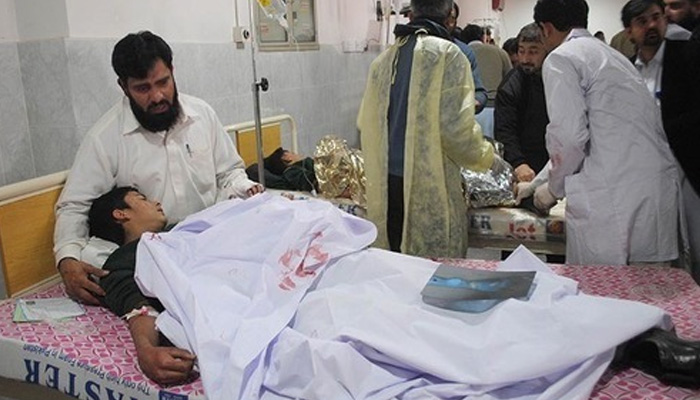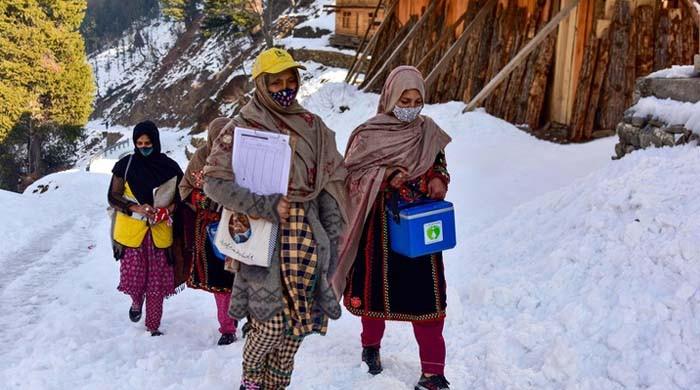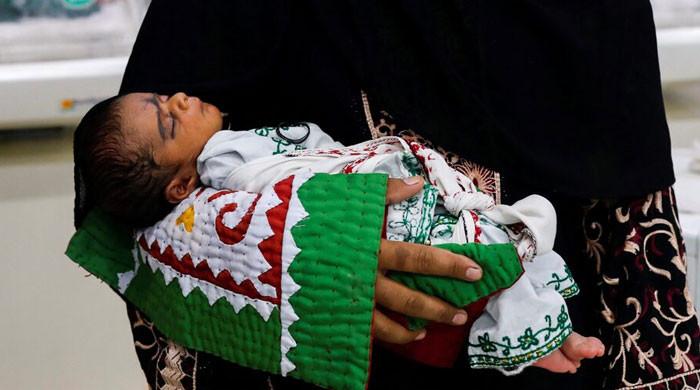Diphtheria outbreak rings alarm bells in Sindh
As per official figures, 10 children died of deadly infectious disease in Sindh in last two months
September 27, 2022

- Diphtheria is a serious infection caused by strains of bacteria.
- Health officials say it is spreading due to lack of professional expertise.
- Urge for immunisation campaign to control outbreak.
Amid warning from the authorities about the spread of waterborne diseases in the flood-affected areas of Sindh, a long-eliminated infectious disease, Diphtheria, has reared its ugly head and has killed 10 children in the province in the last two months.
Health experts fear that the number of deaths due to the vaccine-preventable disease could be much higher than the official figures. The highly lethal infection has vanished from most parts of the world.
“So far 10 children have lost their lives due to diphtheria in Sindh while 39 cases have been confirmed in the province,” Dr Irshad Memon, Project Director of the Expanded Program on Immunization (EPI) told The News when asked about the number of diphtheria cases and mortalities due to the bacterial infection in Sindh.
According to infectious diseases experts, diphtheria is a serious infection caused by strains of bacteria called ‘Corynebacterium diphtheriae’ that make toxins and can lead to difficulty breathing, heart rhythm problems, and even death.
Senior paediatric infectious diseases expert Dr Asad Ali claimed that a diphtheria outbreak was being reported from Karachi and other parts of Sindh.
He shared that as per official figures, the infection has claimed 10 lives but claimed that number of deaths due to the vaccine-preventable disease could be five times higher than this.
“We need outbreak investigation, higher rates of routine childhood immunisation and additional booster Diphtheria-Pertussis-Tetanus (DPT) vaccine in our EPI programme,” said Dr Asad Ali, who is also the associate dean research at Aga Khan University.
The health expert maintained that many countries have eliminated diphtheria through vaccination as in those countries, an additional booster of DPT vaccine is given to children in the later stage of their childhood but in Pakistan, no booster is given due to which it is affecting the children with weak immunity.
Another senior paediatrician Prof Jamal Raza said that Pakistan’s immunisation coverage is not very good and unlike the official figure of 70% reach, it is less than what is claimed.
Interviews with several health officials and infectious diseases experts in Karachi and Hyderabad revealed that diphtheria cases were being reported now as a matter of routine but due to lack of experience and knowledge of general practitioners, they refer these cases very late to specialised hospitals when the disease progressed to an incurable stage.
“We are seeing the diphtheria cases on and off at our facility and at the moment, we have a girl in serious condition at our intensive care unit. If a patient is referred late, even given anti-toxin proves ineffective and chances of survival become difficult,” Dr Abdul Wahid Rajput, medical superintendent of Sindh Infectious Diseases Hospital said.











